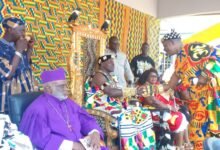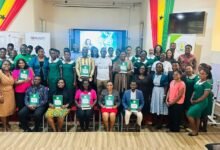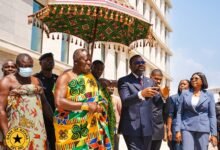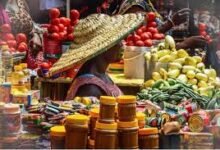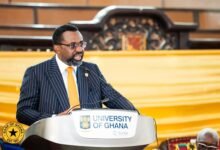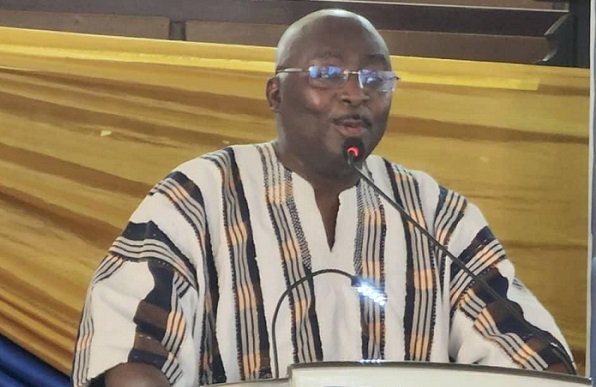
The Vice President, Dr Mahamudu Bawumia yesterday opened the 75th Annual New Year School and Conference of the University of Ghana, Legon, Accra.
The three-day event organised by the School of Continuing and Distance Education is in partnership with the Institute for Democratic Governance (IDEG) on the theme; ‘Nurturing Reliance: Adopting Technology and Embracing Humanism for Sustainable Development.’
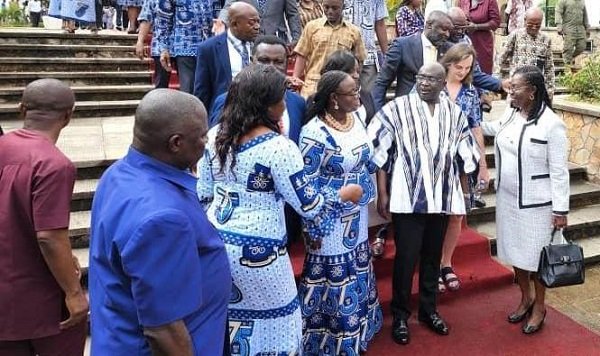
It is aimed at providing a platform at the beginning of each year to engage key stakeholders on issues of national development and global interest, while giving the opportunity for academia to interact with public and private sector, civil society, and the citizenry to deliberate on specific issues of national significance.
According to the Vice President, successive governments and the current government had over the past 75 years benefited immensely from the productive outcomes, innovative ideas and constructive criticisms that have emerged from the New Year School.
“I consider the theme for the 75th edition of the Annual New Year School and Conference apt. It could not have come at a better time than this post pandemic period.”
The annual conference, he said had shaped policy decision and direction over the years in addressing a wide array of topics ranging from the national economy, education, nation building, democracy and election among other topical subjects, carefully selected to tackle peculiar challenges at any point in the history of Ghana.
Touching on the relevance of digitisation, he noted that technology was an enabler which must be leveraged upon to increase productivity and revenue mobilisation for national development, adding that through the Ministry of Communications and Digitalisation, the government had deployed a number of measures which has improved the nation’s Information Technology (IT) infrastructure and made it more robust.
Dr Bawumia mentioned that several interventions had also been rolled out for IT training and capacity building particularly in rural areas and among underserved groups.
He said with the conviction of using technology to stimulate growth and development in all facets of the economy, his outfit remained committed to the construction of the Digital Youth Village (DYV) with provisions made in the 2024 budget.
This initiative, he said is intended to boost digital entrepreneurship among the nation’s youth.
Dr Bawumia charged management of the University of Ghana to ensure the institution remain at the forefront of knowledge production leading to the development of groundbreaking and cutting-edge technologies, tailored to respond to specific challenges and sectors to accelerate national development.
In furtherance, the Vice President commended civil societies like the IDEG and all other organisations whose works have contributed to consistent efforts in research and consultations over the last decade or more with pragmatic proposals to transform Ghana’s Local Government system, “to make it fit for purpose in this new millennium.”
Executive Director of IDEG, Dr Emmanuel O. Akwetey in his remarks underscored the relevance of building stronger national consensus particularly in the light of growing interest in constitutional reforms.
He bemoaned the declining voter turnout in local elections, saying it was a clear indicator of disconnect between the country’s governance system and the citizens it is meant to serve.
On her part, Vice Chancellor, University of Ghana, Professor Nana Aba Appiah Amfo, said the annual conference had become a trusted voice on issues of national development with outcomes appealing to individuals across the political divide in Ghana and globally.
BY RAISSA SAMBOU

